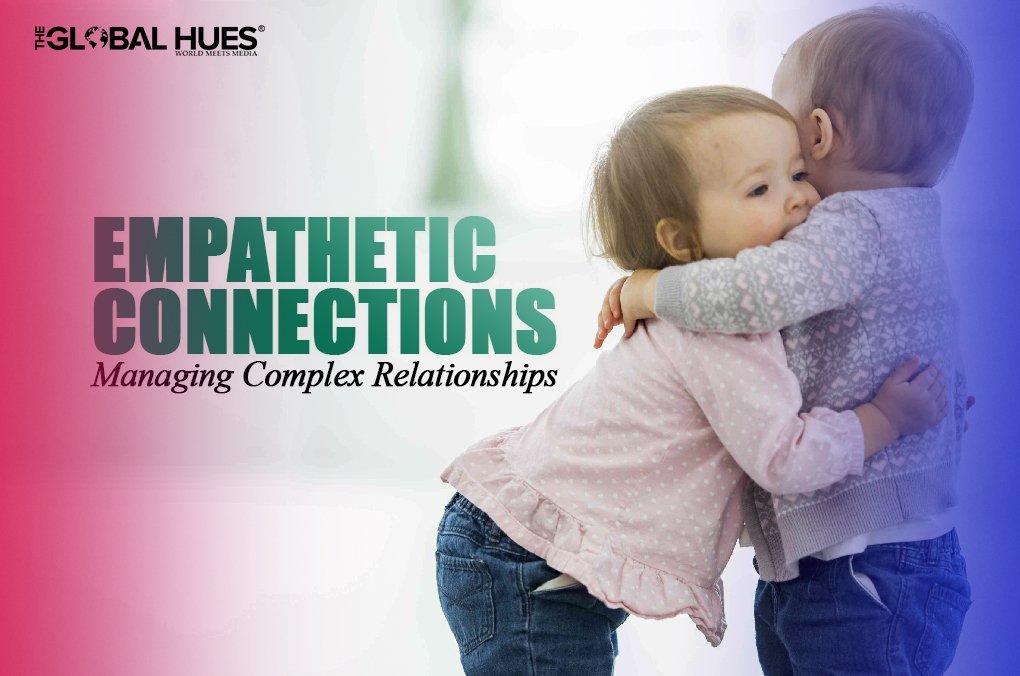(The article is developed in partnership with BetterHelp)
The complexities of managing relationships require a delicate balance of empathy, understanding, and effective communication.
We may be asked to support loved ones during difficult times. We may be in situations with business or family where we must manage relationships with difficult individuals. Certain skills can help us show up for others while honoring ourselves.
There are some practical strategies for providing meaningful support to those facing trauma or mental health challenges. Other approaches can make managing difficult relationships easier. How can we navigate these situations with grace and professionalism?
The Importance of Supportive Relationships
Supportive relationships play a crucial role in our overall well-being and mental health. Having a support system that helps us and helping others are both linked with resiliency. Resiliency is the ability to cope with our challenges and move through them to thrive. Because of this, maintaining a connected social group is good for us.
Most people also find pleasure in their connections with others. When we’re a part of a social group there will be times we’re asked to support our friends. Many families have similar experiences.
Here are 5 reasons why supportive relationships matter:
1. Emotional Support:
Supportive relationships offer a safe space. We can express our feelings and vulnerabilities there without fear of judgment. Knowing that we have someone who listens, understands, and empathizes with us can alleviate stress, anxiety, and loneliness. Support from loved ones can help us with life’s ups and downs. It can increase our resilience and confidence.
2. Practical Assistance:
In times of need, friends often give practical help. They help with chores, errands, or transportation. These acts of kindness not only lighten our workload but also reinforce the bond of trust and reciprocity within the relationship. Knowing that we can rely on others for help may foster a sense of security and belonging.
3. Validation and Encouragement:
Supportive relationships can validate our experiences, thoughts, and feelings. Positive social interactions and relationships can affirm our sense of identity and self-worth.
Encouragement from loved ones may also boost our confidence and motivate us. Friends and family can cheer us on to pursue our goals and aspirations.
Someone believing in our abilities can make a big difference in our lives. Proper support can affect how we see ourselves and approach challenges.
4. Stress Reduction:
According to multiple studies, good social support networks reduce stress. They also improve coping in tough times. The presence of supportive relationships buffers the negative effects of stress. This may reduce the risk of mental health issues like depression and anxiety.
Sharing our burdens with others and receiving their support can help us when the going gets tough.
5. Improved Health Outcomes:
Research has shown that people with social connections tend to be healthier and live longer. Supportive relationships promote healthier choices. They also provide purpose and belonging. They offer a buffer against the harm of isolation and loneliness. From boosting immunity to lowering the risk of chronic diseases, the benefits of supportive relationships extend to our overall health and well-being.
In essence, cultivating and nurturing supportive relationships enriches our lives in countless ways. Others we are in relationships with may feel these effects as well. Whether through lending a listening ear, offering a helping hand, or simply being present, these connections contribute to our happiness, resilience, and overall quality of life.
Supporting Others While Honoring Boundaries
It’s natural for the people in our lives to face difficulties sometimes. They might be dealing with personal challenges, navigating changes, or coping with mental health issues. We may feel compelled to offer support and assistance during these times. It’s a way to show care for those we love.
But, it’s also important to recognize the value of healthy boundaries in our relationships. It’s ok to look out for ourselves even when we’re supporting others.
Setting boundaries allows us to establish clear limits on what we can reasonably offer. We may be giving our time, energy, and emotional investment. It’s ok to establish some limits.
While our intentions to help may be genuine, it’s essential to prioritize our well-being. This can help us avoid overextending ourselves. Respecting our boundaries enables us to maintain a sense of balance and prevent burnout. When we stay strong mentally and emotionally, we can continue to show up for others sustainably.
Small Gestures Matter
That said, supporting others doesn’t always require grand gestures or self-sacrifice. Simple acts of kindness can be significant. They include lending a listening ear, offering words of encouragement, and giving practical help within our means.
We can make a difference in others’ lives by focusing on small, manageable ways to show up for them. This lets us keep our mental and emotional resources.
In the end, finding a balance is usually best. We must support others and honor our boundaries in a balanced way. This creates healthy, fulfilling relationships.
By practicing empathy, communication, and self-care, we can offer meaningful support to those in need while maintaining our well-being.
Understanding Trauma and Mental Health Challenges
Understanding the various forms of trauma and mental health challenges can help when providing effective support to loved ones. Trauma can manifest in different ways. It may stem from past experiences of abuse or neglect.
Traumatic experiences may lead to ongoing stressors like financial instability or relationship conflicts.
Similarly, mental health challenges such as anxiety, depression, or PTSD can significantly impact an individual’s well-being.
We can educate ourselves about these issues to inform our support. We can also listen to our loved ones’ experiences. This will let us offer meaningful help and validation.
Practical Strategies for Support
Prioritizing empathy and compassion can help us support loved ones through challenging times. Validating their feelings and experiences without judgment can create a safe space for them to express themselves openly.
We may also be able to offer practical assistance to ease their burdens. This may involve helping with daily tasks or connecting them with professional resources. Supporting loved ones in these ways demonstrates our commitment to their well-being.
While we’re supporting others, it’s important to remember to maintain our boundaries. It can be hard to resist the urge to overextend ourselves. When we care for ourselves, however, we maintain our own mental and emotional health.
Navigating Difficult Relationships
While supporting those we care about can be complex, it’s often satisfying as well. That’s not always the case when it comes to people we find difficult. Interacting with people we see as unpleasant can be stressful and hard. Sometimes, it’s unavoidable.
How can you interact healthily when someone hates you?
It requires patience and assertiveness to deal with difficult people at work or in our personal lives. You need conflict resolution skills too.
When faced with challenging coworkers or family members, we can still approach interactions with empathy and understanding.
This approach can be more helpful than seeing the other person as someone we dislike or someone who hates us.
An empathic approach can remind us of our similarities. This may help us reduce frustration and anger.
Boundaries are also important in these situations. Setting clear boundaries and communicating assertively can help maintain healthy relationships while minimizing stress and conflict. By practicing active listening and seeking common ground, we can often find constructive solutions to interpersonal challenges.
Connections And Support Can Be Fulfilling
Empathetic connections lie at the heart of meaningful relationships and effective support systems. We can navigate the complexities by valuing empathy, understanding, and good communication. These help us support loved ones through challenges and manage tough relationships with grace and compassion.
When we also remember to care for ourselves. We can achieve more balance in tough relationships.




